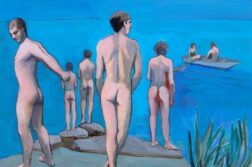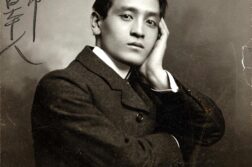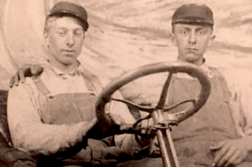DURING the Spring 2009 semester at Princeton University, my students in “Queer Theory and Politics” and I staged a demonstration on campus against the National Organization for Marriage (NOM), a Princeton-based nonprofit organization whose self-described mission is “to protect marriage and the faith communities that sustain it.” We protested their $1.5 million ad campaign, ominously titled “A Gathering Storm,” in which paid actors presaged, “There’s a storm gathering. The clouds are dark and the winds are strong, and I am afraid. Some who advocate for same-sex marriage have taken the issue far beyond same-sex couples. They want to bring the issue into my life. My freedom will be taken away. … The storm is coming.”
Embracing a program of action-based learning, I had my students apply theories of queer politics by staging an actual demonstration. Aristotle was my inspiration: “For the things we have to learn before we can do them, we learn by doing them.” Or consider Confucius: “Tell me, and I will forget. Show me, and I may remember. Involve me, and I will understand.” Early education theorist John Dewey, along with contemporaries such as David Kolb and others, have empirically validated the mutuality between thinking and acting, exposure and experience.
Aware of possible risks, I took three precautions: We voted on the idea (the decision was unanimously in favor), I invited students to e-mail me privately if anyone did not want to speak out publicly against the idea (no one did), and I allowed students to observe from the sidelines during the event itself (two students did). Like any other class session, this final one was mandatory. Unbeknownst to my students, they would have to use course frameworks for a postmortem analysis on their final exam. Thus, the progression from reading and discussing academic materials in class, to implementing our own queer political event, and then formally reflecting on it in an exam made for a productive synthesis of theory, practice, and analysis.
But a formal complaint against the exercise obliged the university to respond in a way that raised a series of difficult questions: What is the role of the classroom in campus demonstrations and contemporary politics? Do classroom-based political exercises require drawing clear lines between mandatory participation versus observation? Is there a way to dialogue political theory and practice with students—particularly in the context of a course on queer theory and politics, and in the presence of an instructor—without running the risk of coercion? And how does academic freedom factor into this mix? What follows is a story about an exercise in experiential learning that complicates the relationship between pedagogy and politics.






